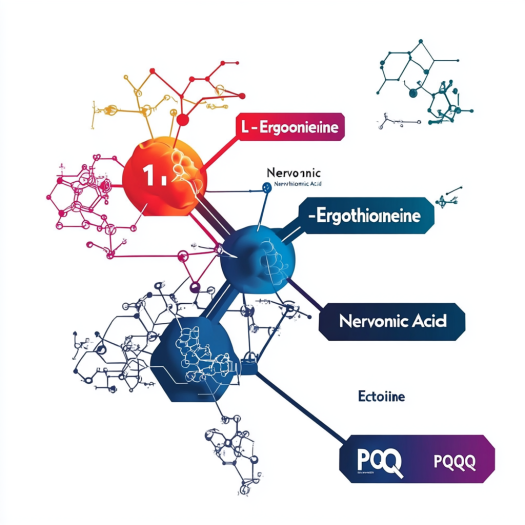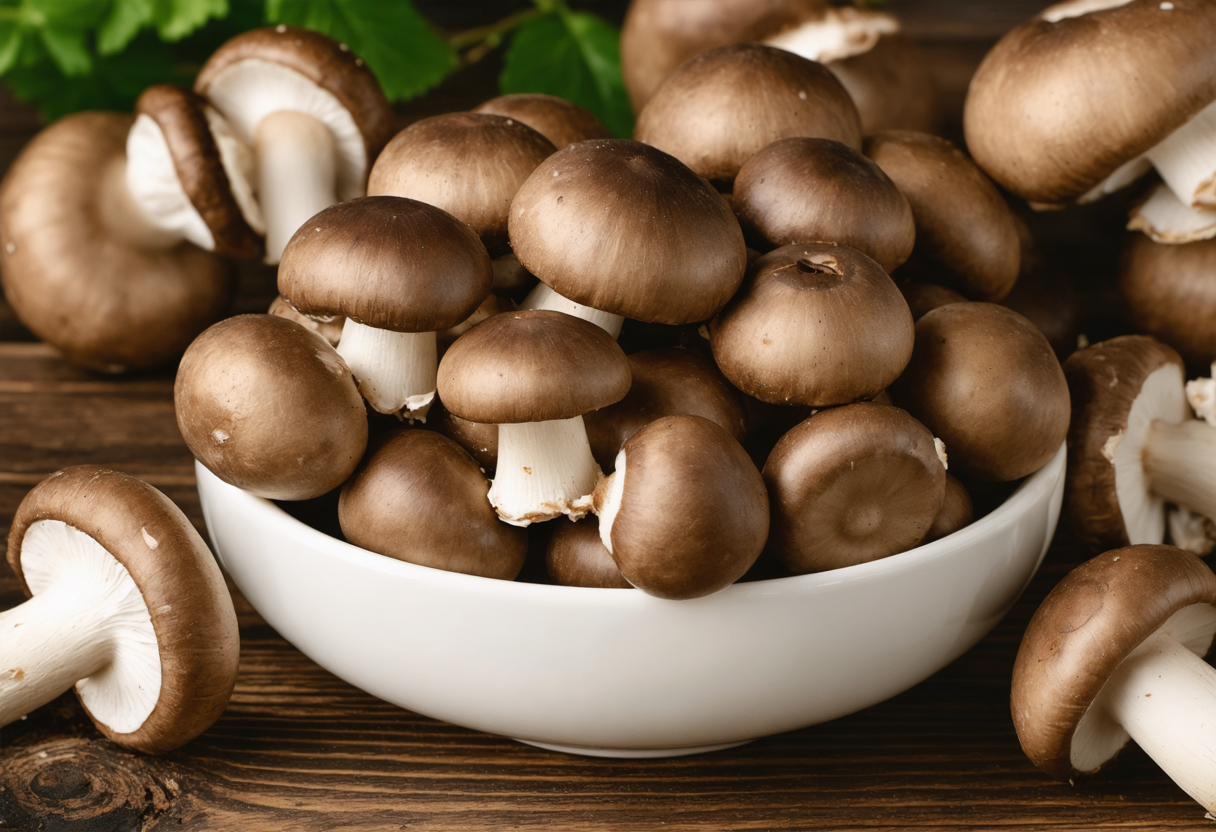
In my early days exploring the supplement world, I stumbled on a curious compound called L-ergothioneine. I remember thinking, “Is it a vitamin? An antioxidant? Why haven’t I heard more about it?”
L-ergothioneine is a unique amino acid-like molecule often associated with antioxidant properties and cell protection. Found primarily in certain mushrooms and fermented foods, it has drawn scientific attention for its potential role in healthy aging, immune support, and overall cellular resilience. While research continues, many see it as a promising addition to a balanced lifestyle.
I was hooked. I needed to understand what L-ergothioneine does—and why it matters.
Why Is L-ergothioneine Sometimes Called the ‘Longevity Vitamin’?
I first heard someone refer to L-ergothioneine as a “longevity vitamin” at a trade show. It sounded almost mythical, like a long-lost secret to eternal youth.
Because L-ergothioneine accumulates in areas of high oxidative stress and helps guard against free radical damage, some researchers believe it may support longevity-related processes. It’s not a magic bullet, but it’s earned a reputation for enhancing the body’s natural defenses, especially in tissues prone to wear and tear over time.
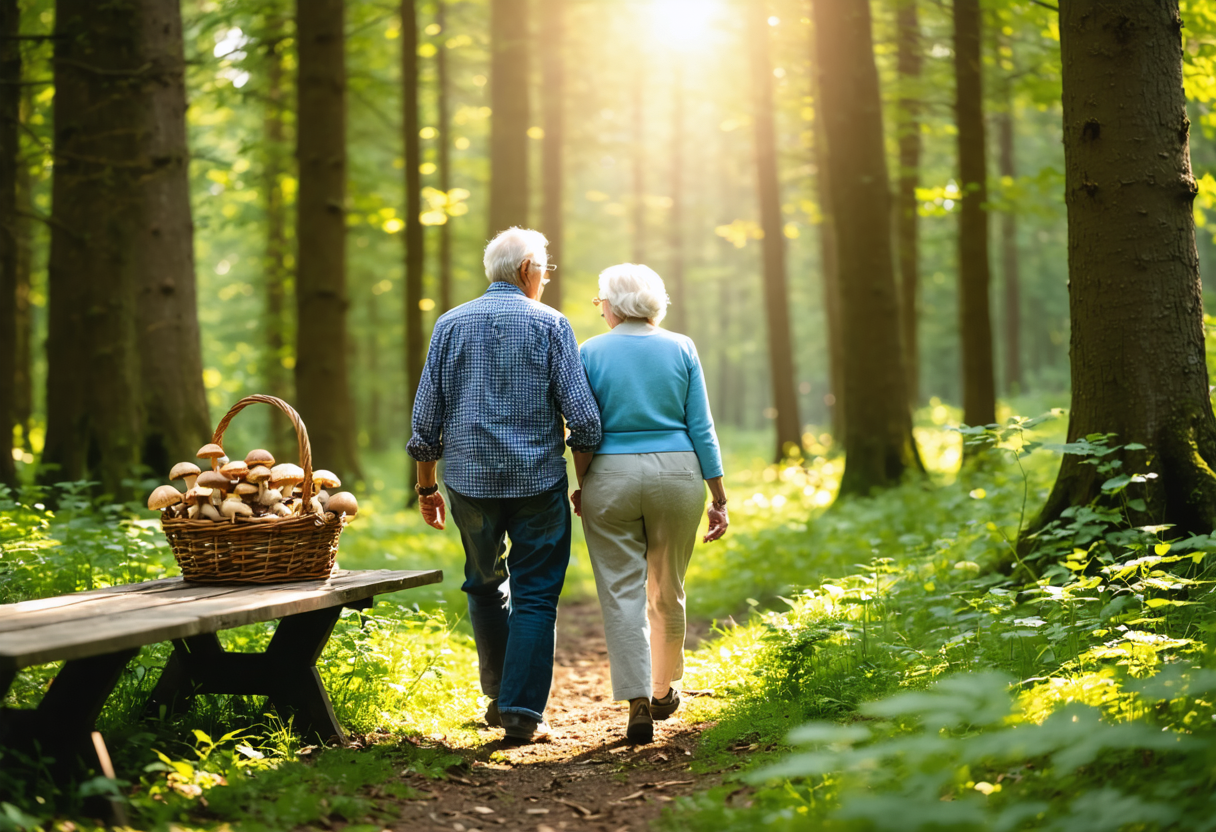
Let’s face it: we’re all looking for ways to live not just longer, but better. The story of L-ergothioneine’s “longevity” nickname starts with its impressive role as an antioxidant and cell protector. Oxidative stress, after all, is a big factor in aging—think of it as a constant “rusting” that happens in your cells when free radicals run amok. Over time, that can lead to multiple age-related concerns, from cognitive decline to skin aging and beyond.
What makes L-ergothioneine special is that we humans have an exclusive transporter—scientifically called OCTN1—designed to take up this compound and distribute it to places like the liver, kidneys, red blood cells, and certain regions of the eyes. This suggests our bodies consider it important enough to actively preserve. Once there, L-ergothioneine gets to work neutralizing harmful oxidative molecules or, in some cases, preventing their formation in the first place.
Could this add up to actual “longevity” effects in humans? The jury’s still out. Large-scale, long-term studies are still emerging. However, many smaller investigations and anecdotal accounts point to improved cellular health when diets are enriched with L-ergothioneine—be it through mushrooms, fermented foods, or specialized supplements. If you’re someone who’s curious about graceful aging or shoring up your antioxidant defenses, it’s easy to see why L-ergothioneine might catch your eye. Just remember: it’s no substitute for the basics like good sleep, balanced nutrition, exercise, and stress management. Rather, it’s one more puzzle piece in the quest for a vibrant, long life.
Where Does L-ergothioneine Come From?
When I began researching L-ergothioneine, I quickly learned it wasn’t produced by humans. That raised a burning question: “If we don’t make it ourselves, how do we get it?”
L-ergothioneine is mostly synthesized by certain fungi and bacteria found in soil. Mushrooms—like shiitake, oyster, and king trumpet—are among the richest dietary sources. It can also appear in fermented products or grains that interact with these microbes.
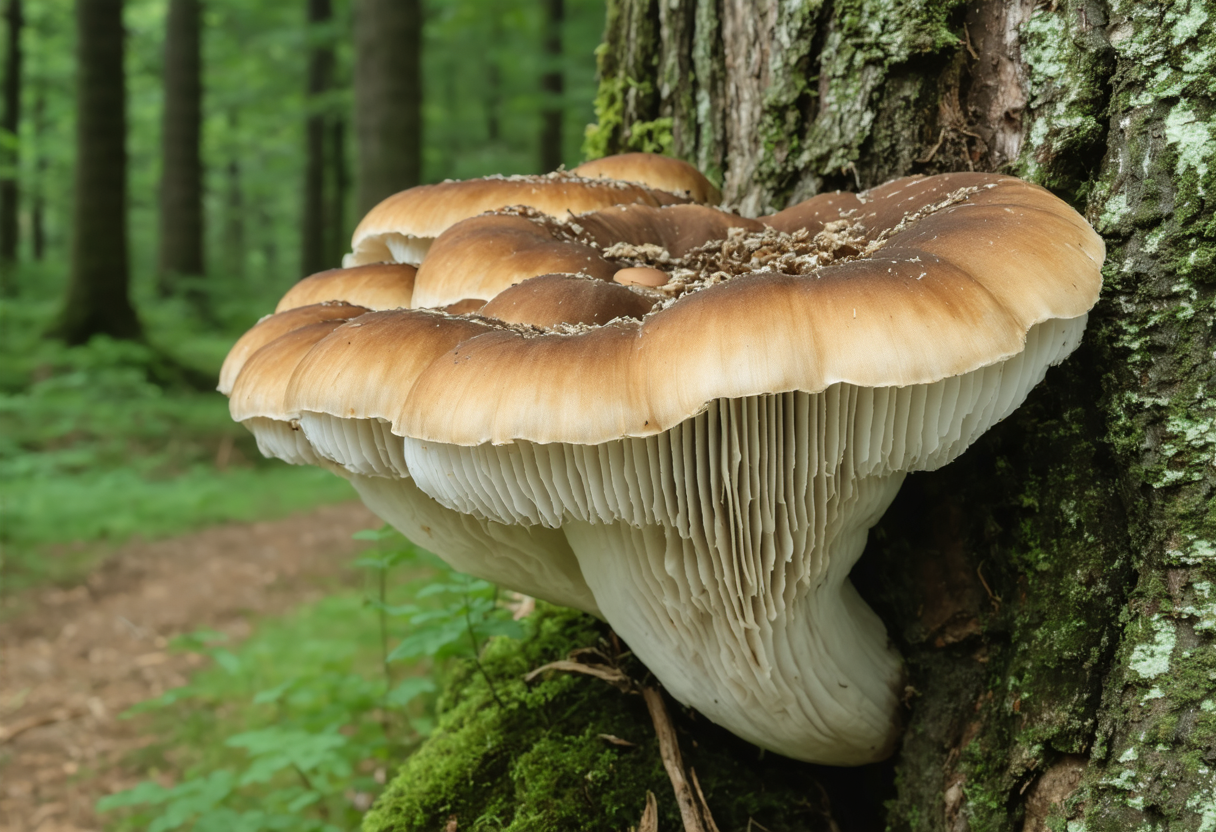
I recall trying a new mushroom-based dish at a food expo, only to learn afterward that it was brimming with L-ergothioneine. The chef, knowledgeable in functional foods, emphasized how mushrooms can accumulate this compound from the soil. The fungi produce or absorb L-ergothioneine, storing it in their tissues—especially in the caps or stems. Shiitake, maitake, and oyster mushrooms often top the list for L-ergothioneine content, though amounts can vary by growing conditions.
Beyond mushrooms, certain bacteria can produce L-ergothioneine too, passing it along the food chain. For instance, if a grain field’s soil is rich in these microbes, minute amounts of ergothioneine might end up in the final harvest. But let’s be real: if you rely solely on cereals for L-ergothioneine, you’ll likely get only trace amounts.
Given the unique ways L-ergothioneine enters our diet, many companies have turned to fermentation-based production to ensure consistent, solvent-free supply. At Santa Biotech, we rely on advanced microbial strains that generate a high-purity version of L-ergothioneine, free from unwanted contaminants. This approach suits both dietary supplement makers and skincare formulators seeking a reliable raw material. Because mushrooms can be seasonal or vary in quality, fermentation methods bring stability and meet global compliance standards.
So, how do you know if you’re getting enough from your diet alone? Unless you’re a mushroom lover eating these fungi multiple times a week, you might have limited intake. That’s precisely why L-ergothioneine supplementation has gained traction for folks wanting to ensure they’re hitting an optimal daily level. But keep in mind: the body is complex, and results may differ from person to person. Some see noticeable changes—like better energy or skin glow—while others simply appreciate the idea of extra antioxidant backup.
How Does L-ergothioneine Help with Cell Protection?
I remember a friend exclaiming, “It’s an antioxidant, right? So it kills free radicals—big deal.” But L-ergothioneine’s protective role is a bit more nuanced.
Unlike many antioxidants, L-ergothioneine can remain stable and active under stress, targeting oxidative hotspots like mitochondria. Studies suggest it not only scavenges free radicals but may also help regulate inflammatory pathways, thus shielding cells from damage over time.
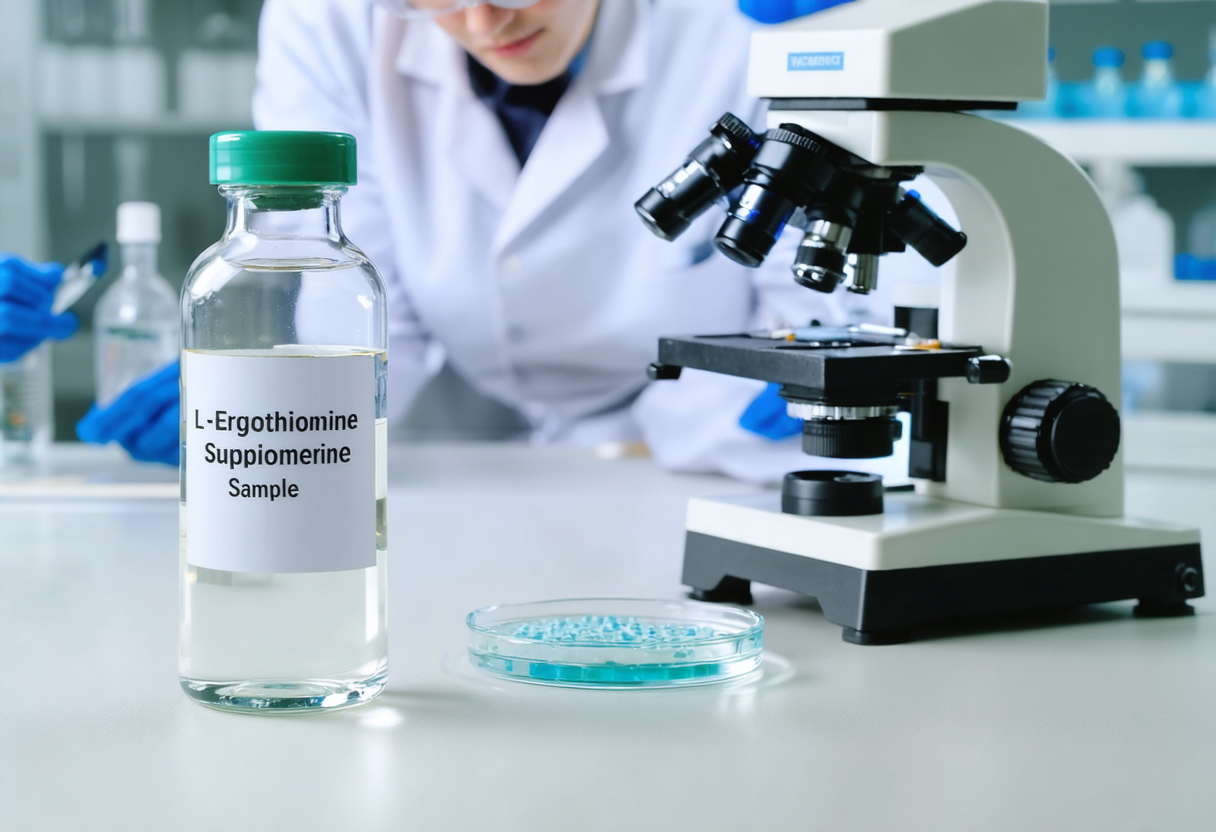
We live in an environment loaded with factors that can stress our cells—pollution, UV rays, poor diets, and everyday emotional tension. Our bodies fight back by deploying antioxidants, which donate electrons to neutralize harmful free radicals. However, many antioxidants degrade or get “spent” quickly in this battle. L-ergothioneine stands out because it’s stable, often able to fight again and again without breaking down easily.
Researchers speculate that L-ergothioneine zeroes in on specific parts of cells prone to high levels of oxidation, such as the mitochondria. Think of mitochondria as power generators that keep every cell running. But they also produce reactive byproducts in their energy-making process. If these free radicals aren’t managed, they can damage mitochondrial DNA and proteins, leading to fatigue or even cell death. By localizing in these hotspots, L-ergothioneine offers continuous coverage, potentially reducing oxidative burden before it spirals out of control.
But oxidation isn’t the only threat. Chronic inflammation can also degrade cells, hamper organ function, and accelerate aging. Early evidence suggests L-ergothioneine might influence inflammatory signaling, helping the body avoid runaway inflammation. For instance, in some lab models, adding L-ergothioneine calmed the release of pro-inflammatory markers, which might translate to benefits in real-world conditions like joint stress or high-intensity exercise recovery. While it’s not a cure-all, the potential synergy between antioxidant and anti-inflammatory roles is what makes it intriguing for both researchers and supplement enthusiasts.
Let’s consider synergy with other antioxidants, too. Many people rely on vitamin C, E, or glutathione. L-ergothioneine can complement them by focusing on different cell compartments or by recharging its antioxidant capacity more effectively. Some advanced supplement formulas combine it with co-factors like PQQ or CoQ10, forming a multi-layer approach to cell vitality. If you’re an athlete, older adult, or someone living in a high-stress environment, you might see real perks from reinforcing your cellular defense on multiple fronts.
Does this mean L-ergothioneine can solve all issues linked to oxidative stress? Obviously not. Our bodies are incredibly complex, and factors like diet, genetics, and lifestyle play huge roles. A smoker with zero exercise might not see the same impact as a health enthusiast who’s already eating antioxidant-rich foods. Still, if you’re chasing comprehensive cell protection, L-ergothioneine stands out as a potent ally. It’s akin to having an extra guard at the gates—ever-alert, seldom fatigued, and uniquely adapted to key stress zones in your cells.
Who Benefits Most from L-ergothioneine, and How?
I’ve been asked countless times: “Should I be taking L-ergothioneine if I already eat healthy and take a multi?” The honest answer? It varies.
Those under high oxidative load—like athletes, older adults, or people exposed to environmental toxins—might gain the most from L-ergothioneine’s targeted protection. However, many everyday health-seekers also value it for sustained cellular defense, especially if their diets are low in mushrooms and fermented foods.
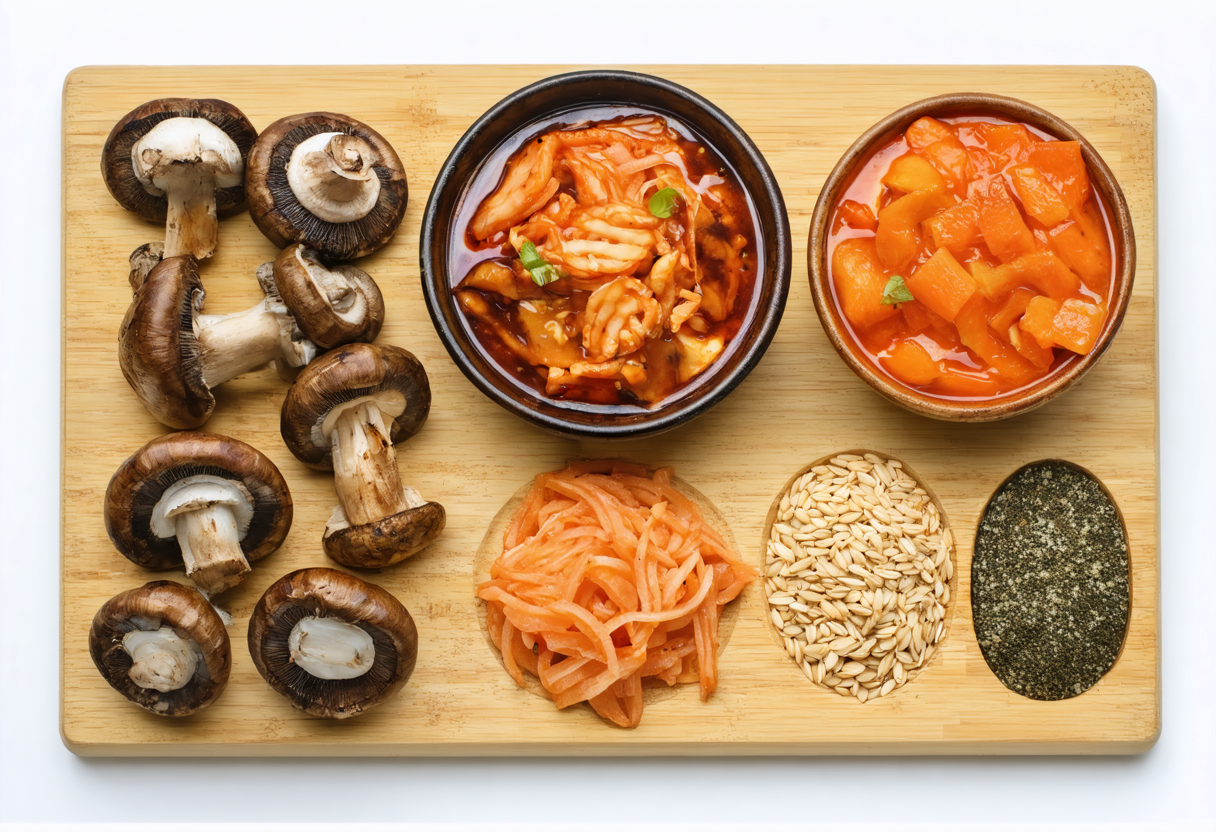
Not everyone’s life looks the same. Some of us juggle 10-hour workdays, stressful commutes, and minimal sleep. Others might be training for a triathlon or dealing with a high-pollution city. Meanwhile, a lucky few have balanced routines, ample exercise, and near-perfect diets. Where you fit on this spectrum can determine how beneficial L-ergothioneine might be.
1. High-Stress Urban Lifestyles: If you’re constantly breathing in smog, dealing with city noise, or enduring mental stress from a high-powered job, you’re likely facing more oxidative stress than you’d imagine. Environmental pollutants and chronic cortisol spikes can raise free radical production. By introducing L-ergothioneine, you may give your cells an extra line of defense. It’s not an instant fix for burnout or pollution, but it can be part of a strategy that also includes dietary improvements (like more fresh produce) and stress management (like meditation or light exercise).
2. Active or Aging Populations: Athletes place huge demands on their bodies, creating oxidative stress from intense workouts. Meanwhile, older adults often experience declining antioxidant reserves, which can accelerate visible and internal signs of aging. In both cases, a stable antioxidant that zeroes in on critical cells—like muscle, nerve, or immune cells—could help maintain function and resilience. Although the effects might be subtle (like faster recovery or less “burn out” after strenuous exercise), they can stack up over time.
3. Low Mushroom Consumers: Given that mushrooms are a prime natural source, those who rarely eat them might not get much L-ergothioneine from food. If you dislike mushrooms or simply don’t cook with them often, you could be missing out on this beneficial compound. Supplements can fill the gap, ensuring you maintain some baseline level that your body seems to have evolved to utilize.
4. People with Certain Health Goals: We see a growing trend of individuals focusing on “biohacking” or “cellular optimization.” They explore everything from intermittent fasting to advanced nutraceuticals. L-ergothioneine often appears in these circles because it’s a unique antioxidant that complements bigger strategies—like adopting a low-inflammatory diet, fine-tuning sleep, or using other micronutrients. People seeking to protect their brains, hearts, or immune systems might find an additional layer of security in L-ergothioneine’s stable, targeted action.
5. Potential Skin or Cosmetic Uses: Some skincare brands are exploring L-ergothioneine as an anti-aging ingredient. Because skin is regularly assaulted by UV rays and pollution, applying an antioxidant that’s stable and can persist at the cellular level might help preserve elasticity or reduce fine lines. If you see a cream or serum listing L-ergothioneine, it usually pairs with other protective agents like Ectoine or hyaluronic acid. They might claim synergy in warding off oxidative stress in deeper skin layers.
Of course, these are general scenarios. Everyone’s physiology is distinct, and some might see more pronounced benefits than others. It’s also important to consider synergy with other lifestyle factors. If you’re just starting to improve your health, focusing first on consistent sleep, whole foods, and regular movement can yield massive gains. L-ergothioneine or any supplement is more effective when you’ve got a supportive foundation. On the flip side, if you already manage stress well, get your 7-8 hours of sleep, and eat a balanced diet, adding L-ergothioneine might be that fine-tuning step that further bolsters your cellular health.
Personal Story: I once chatted with a friend who began taking L-ergothioneine amid a hectic city life. After a couple of months, she mentioned feeling more “awake” and less drained by midday. She also started a moderate workout routine and improved her diet around the same time, so it’s tough to pinpoint how much L-ergothioneine contributed. But she attributes at least some of her newfound energy to the supplement’s consistent antioxidant support, which might have helped her adapt better to stress. Anecdotal? Yes. But sometimes, these personal accounts highlight how multiple small changes, including targeted supplementation, can add up.
So if you’re on the fence about L-ergothioneine, consider the bigger picture: your diet, lifestyle, stress level, exposure to pollutants, and personal health goals. If you suspect higher oxidative stress, or you simply want an extra layer of cellular defense, it’s one of the more interesting nutrients to explore. And if you’d like to see how we produce it—fermentation-based, free from harsh solvents, globally compliant—check out our official Ergothioneine product page. We at Santa Biotech enjoy collaborating with brands that want to formulate high-quality dietary supplements, functional foods, or even advanced skincare lines.
How to Select a Quality L-ergothioneine Product
You’ve decided to try L-ergothioneine. Now comes the tricky part: choosing among a sea of labels. Which one is legit?
Start with sourcing: look for brands that specify fermentation-based production or rigorous purity testing. Check dosage (often 5–30 mg daily), plus synergy with other ingredients. Avoid overhyped claims, and remember that consistent use in a balanced routine is often more impactful than isolated mega-doses.
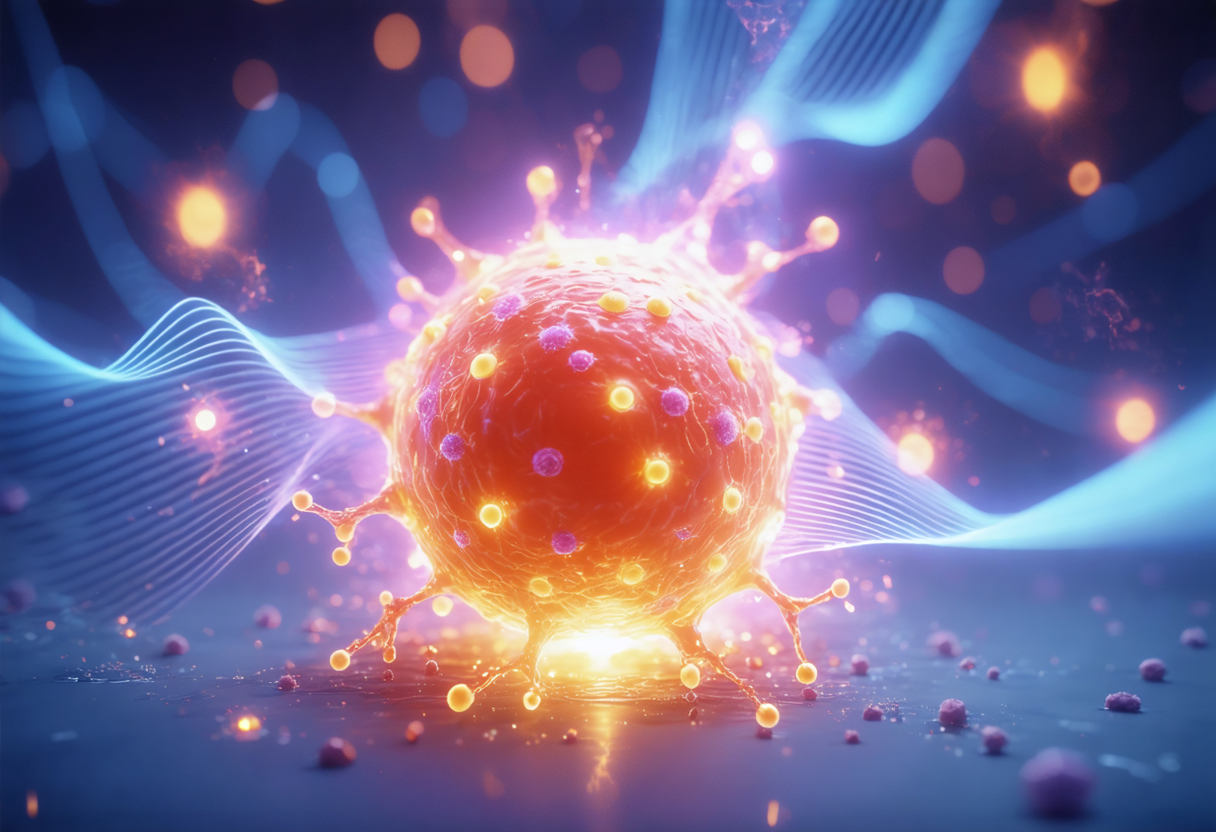
I’ve been burned before—buying random supplements with fancy labels, only to later learn they were under-dosed or contaminated. For lesser-known compounds like L-ergothioneine, a few guidelines help ensure you’re getting a product that’s both safe and potentially beneficial.
-
Sourcing and Transparency
- Look for mentions of “fermentation-based” or “microbial fermentation” on the label or product website. This production method often yields cleaner, more consistent L-ergothioneine, free from aggressive chemicals.
- Reputable brands typically share lab testing results or certifications (like ISO, cGMP, or NSF). Check if they mention the ingredient’s purity level or if they provide a certificate of analysis (COA).
-
Dosage and Formulation
- Common recommended amounts range from 5 mg up to 30 mg daily, though no official “optimal dose” is universally agreed upon. If a product only contains 1 mg per serving, that might be too little for noticeable impact.
- Some formulas blend L-ergothioneine with vitamins, minerals, or other antioxidants (like vitamin C, E, or PQQ) for synergy. That’s fine, but scan the label carefully to ensure they’re not just sprinkling trace amounts of key nutrients under the banner of a “proprietary blend.”
-
Avoid Overblown Claims
- If a brand says L-ergothioneine will “stop aging” or “cure diseases,” take it as a red flag. Genuine scientific evidence suggests beneficial effects, but it’s not a miracle worker. Balanced marketing typically states the compound’s known mechanisms—antioxidant, cell protection—without guaranteeing wild transformations.
-
Consider Your Lifestyle and Goals
- If you lead a high-stress life or you’re heavily into fitness, you might want a slightly higher dose or a synergy-based product. If you just want baseline coverage and you already eat mushrooms regularly, a moderate or lower-dose supplement could suffice.
-
Check for Additional Additives or Allergens
- Some capsules contain fillers, binders, or allergens. If you’re sensitive or prefer “clean label” products, look for minimal excipients. This is especially relevant in B2B contexts where you might want a certain type of capsule—vegan-friendly, allergen-free, etc.
-
Long-Term Consistency vs. One-Off Use
- L-ergothioneine works best cumulatively. Don’t expect an immediate jolt, like caffeine. Instead, think of it as a daily shield that gradually optimizes your cellular environment. If you only use it sporadically, you might not see sustained benefits.
- Similarly, if after a month or two you notice no changes, evaluate whether your dosage, brand quality, or general lifestyle might be limiting results. Sometimes, small tweaks or a different brand can make a difference.
-
Mindful Budgeting
- Premium products can get pricey. Compare cost-per-milligram across options. But remember, cheaper doesn’t always mean better. It might be worth investing in a brand that invests in transparent sourcing and rigorous testing.
Below is a simplified table showing what to look for when comparing L-ergothioneine supplements:
| Criteria | What to Check |
|---|---|
| Production Method | Fermentation-based? Solvent-free? |
| Dosage per Serving | Typically 5–30 mg |
| Certificate of Analysis | Tests for purity and contaminants? |
| Added Ingredients | Are they beneficial or filler? |
| Brand Reputation | Transparent, credible, good reviews? |
| Price per Mg | Reasonable cost vs. unknown cheap? |
Ultimately, selecting a top-notch L-ergothioneine product involves a bit of detective work. But it’s worth it if you want the compound to genuinely support your wellness journey. I’ve seen how a well-chosen brand can lead to subtle yet real improvements in daily energy, skin glow, or stress resilience—especially when combined with consistent exercise, balanced meals, and good sleep. So approach the market with a clear head, ask questions, and avoid shortcuts. Quality is everything when it comes to specialized nutrients like L-ergothioneine.
Conclusion
L-ergothioneine shines as a targeted, stable antioxidant that helps guard cells from oxidative stress. While not a magic cure-all, it can enhance a healthy lifestyle through consistent use and quality sourcing.

